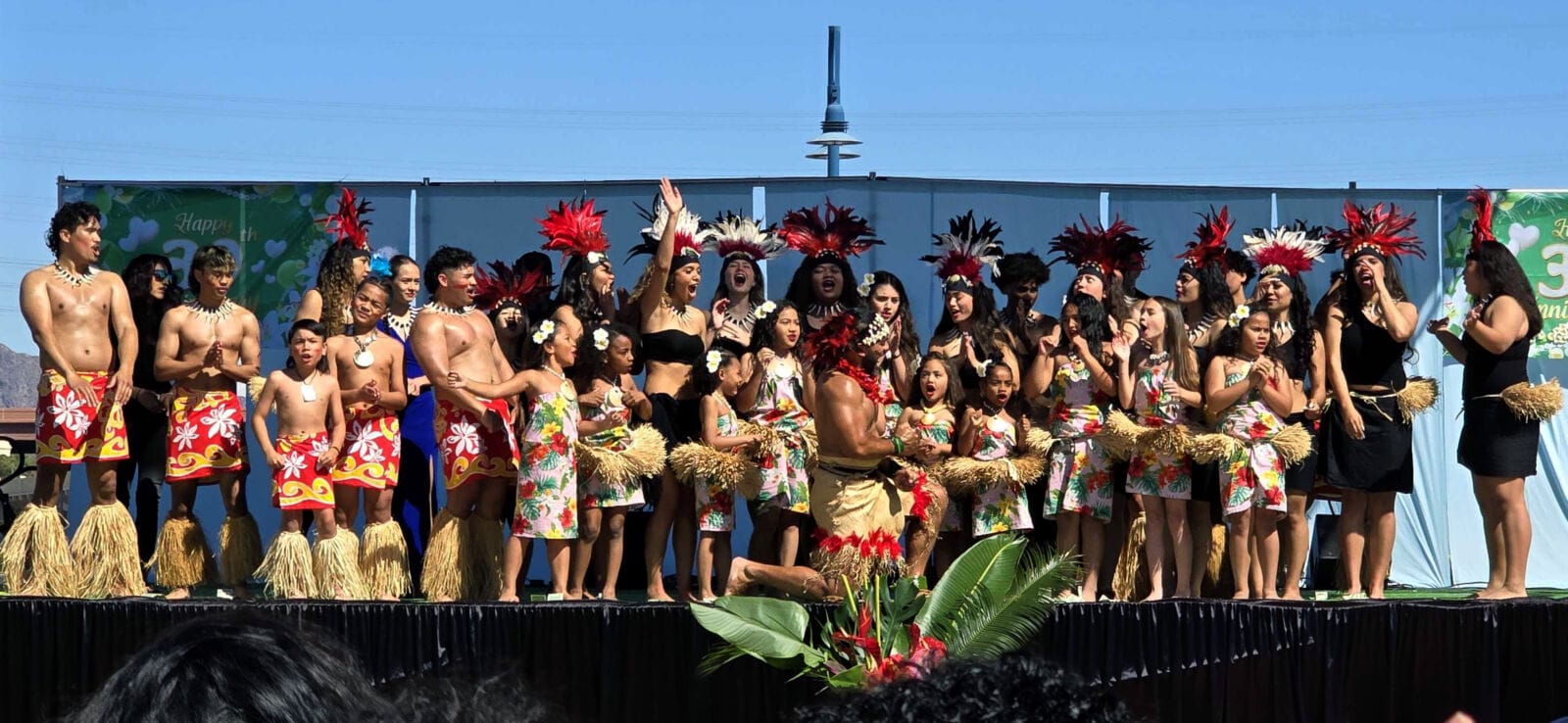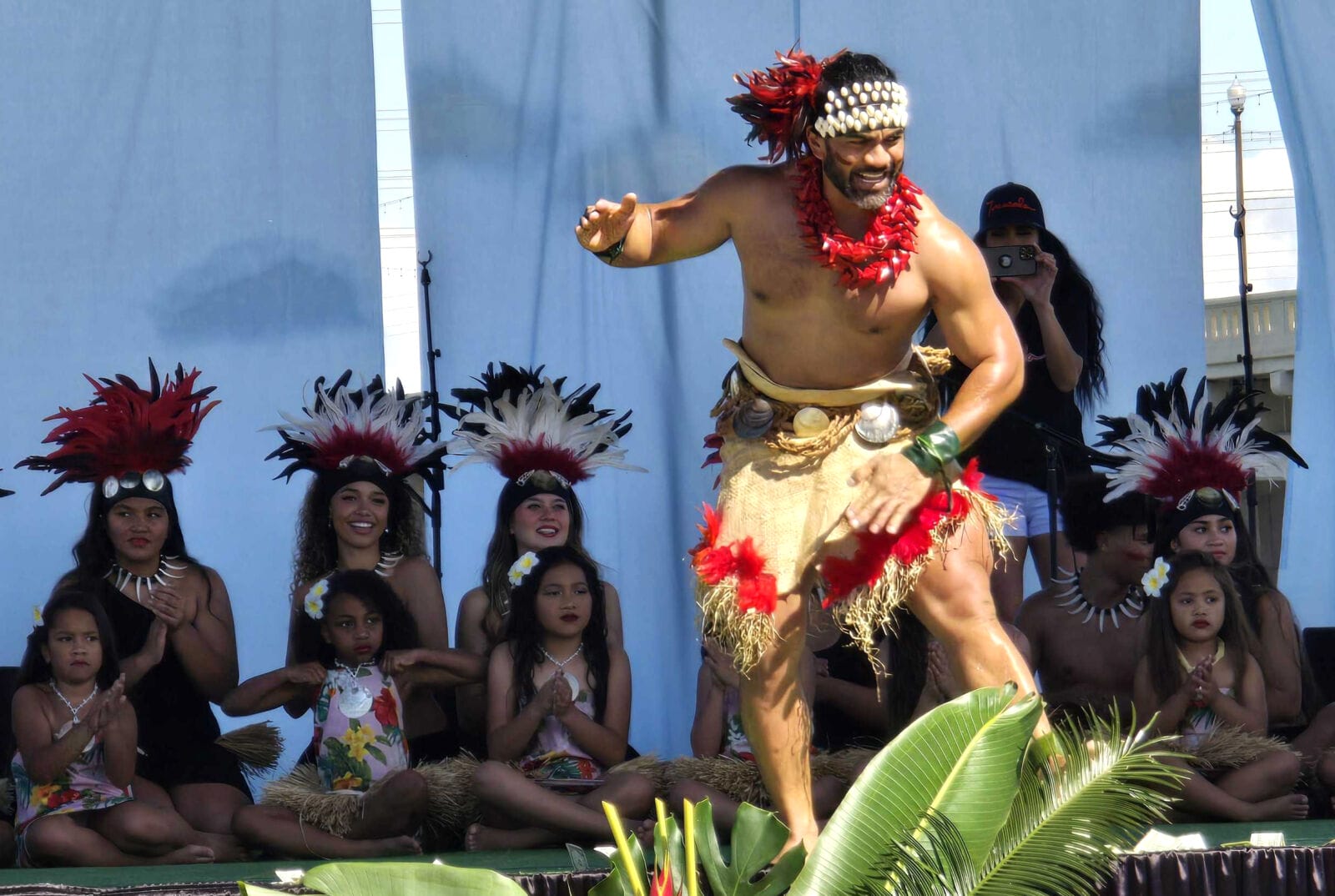The Arizona Aloha Festival celebrated its 30th anniversary at Tempe Beach Park, hosting a two-day festival to showcase and perpetuate Polynesian culture in the Grand Canyon State.
“I want to welcome you to the island of Tempe,” Jennifer Adams, Tempe vice mayor, says. “Have a wonderful time with your ’ohana. Above all, embrace the aloha spirit as you enjoy your day.”
LEARN MORE: 6 spring fashion trends for men
Thousands of Arizonans celebrated various Polynesian cultures: Hawaiian, Samoan, Tongan, Māori and Tahitian to name a few. Dozens of food and merchandise vendors also highlighted the various island cultures of the Pacific.
One of those vendors was Gwen Chung, owner of Classic Hawaiian Designs, a business focused on making and selling Hawaiian heirloom jewelry. Many visited Chung’s tent, checking out the various pieces offered by the 37-year-old business.
“[The event organizers] really put everything together very well,” Chung says. “People who attend this event are surprised at how extensive it is.” Chung adds that the festival does a good job in “covering the spectrum as far as sharing aloha and the different cultures.”

The festival was also a place to learn. A keiki activities area for children — but open to the general public — taught how to make paper flower leis. A hale mana’o — house of knowledge — was a place where anyone could take a deeper dive into the specific aspects of Polynesian culture: dress, dance, history, language.
A mainstay of the festival were the various cultural performances by various hālaus — hula groups — including Tausala Productions School of Dance, Halau Kuliaikapono and Halau Hula O Makalani Na Pilialoha. Crowds cheered and applauded the commitment, dedication and skill of these hālaus.
That is what the festival’s committee and board of directors wants to happen: an acceptance and celebration of everything Polynesian.
Lani Auwen, a director on the festival’s board of directors, has been involved since the beginning. She says the event started off as an “interactive activity for Polynesian culture” but has now morphed into something much more significant.
“What are we doing to perpetuate this knowledge for our own children instead of just [having] a little cultural event that the public may come to?” she says.
Auwen wants festival goers to feel joy and the aloha spirit. “We want the aloha to be shared. Whether you’re Polynesian or non-Polynesian, it does not matter to us because you can all enjoy Polynesian culture.”
Leilani Dong holds a similar sentiment.
“The great thing about [the] festival is that it’s a medium for gathering, right?” she says. “It’s a gathering of people who come to celebrate culture. If you don’t celebrate something, then it dies. We need to celebrate it to keep it alive.”
For Varen Berryman, president of the Arizona Aloha Festival, the event is a chance for all Polynesians to hold their heads up high and honor their cultures. He adds that the festival showcases that there are different cultures — Hawaiian, Samoan, Tahitian, Tongan, Māori — but each considers the other family.
“We are different, but we are one,” he says.




